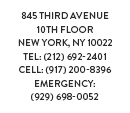Remarks by President Cyril Ramaphosa at the United Nations Private Sector Forum Lunch
24 September 2018
Excellencies,
Members of the Global Compact,
Members of Civil Society,
Ladies and Gentleman,
Thank you for inviting me to speak at this important luncheon on the margins of the Nelson Mandela Peace Summit.
We appreciate the vision of the members of the Global Compact who have taken it upon themselves to consider the role that the private sector can play in building and investing in peace.
This debate is taking place in the context of the centenary of the birth of our founding President Nelson Mandela, who dedicated his life to the achievement of peace, reconciliation and justice.
Despite progress in many areas, peace continues to elude many countries.
War and conflict continue to take lives and ruin lives, to destroy economies and to impoverish peoples.
We know the limits of peace keeping operations alone.
There are too many countries that have slipped back into conflict because peace agreements have not been followed by post-conflict reconstruction and development.
Far too often, conflict could have been avoided by multilateral interventions and effective engagement between parties before a crisis escalates into violence.
It was for this reason that the UN decided to establish the Peacebuilding Commission to take up the responsibility of coordinating efforts towards building and investing in peace.
The Peacebuilding Commission’s efforts can only succeed with the support of political leadership and their partners, like those in the private sector.
Peace, stability and the rule of law are critical for economies to thrive and for businesses to achieve sustainable returns for shareholders.
The private sector therefore has a direct interest in the preservation or restoration of peace.
Many of today’s conflicts, particularly in our continent of Africa, arise from developmental challenges.
As countries emerge from conflict, they face the challenge of rebuilding the state, which includes building infrastructure, establishing resilient public institutions and restoring the economy to health.
This is where the private sector can play a critical role, working in partnership with civil society and political leadership.
There is no lack of plans and strategies for consolidating peace; only a lack of implementation.
Beyond political commitment and goodwill, these programmes require financial, human and technological resources.
Many of these resources and many of these capabilities reside in business.
It is therefore necessary to develop mechanisms to mobilise such resources in support of peace building.
More broadly, it is important to jointly promote post-conflict development so that companies have the confidence to invest in countries that are emerging from war and that these countries have the policies, institutions and social stability needed to attract investment.
Investment is necessary to promote economic progress and stability, while stability is an important condition for investment.
To ensure that this becomes a virtuous circle – rather than a vicious cycle – requires a social compact which clearly delineates the respective responsibilities and expectations of all partners.
This requires the involvement of political leaders, business leaders, unions and other social formations – supported wherever possible by international organisations like the UN or continental bodies like the African Union.
This centenary of President Mandela offers all of us an opportunity to reflect on progress and challenges, and the work we still need to do to advance peace.
We have this morning through the Political Declaration adopted by the Summit declared the next 10 years to be the Nelson Mandela International Decade for Peace.
We should seize the opportunity of this decade to rally behind a common agenda for peace.
For our part, we are committed to work together with the UN and the members of the Global Compact to ensure that we build a strong and lasting partnership that will deliver not only peace – but also prosperity – to all the people of the world.
I thank you.
Issued by: The Presidency
Pretoria
http://www.thepresidency.gov.za/
Thursday, 27-Sep-2018 2:17 PM



